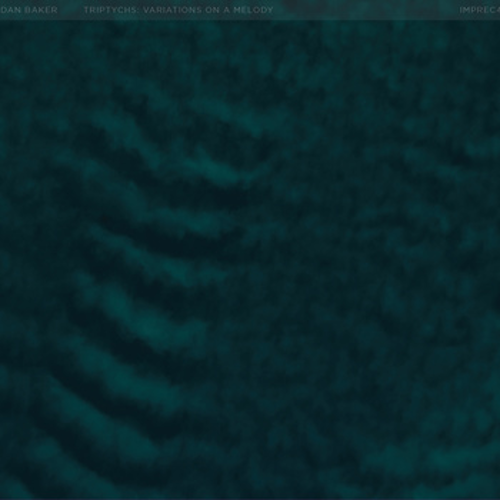Dead Can Dance (1984)
 Born out of the dark and then-derelict Isle if Dogs in London, where Lisa Gerrard and Brendan Perry scratched out a living since relocating from Australia. This was Dead Can Dance‘s début – a collection of songs that had been percolating away for over four years before.
Born out of the dark and then-derelict Isle if Dogs in London, where Lisa Gerrard and Brendan Perry scratched out a living since relocating from Australia. This was Dead Can Dance‘s début – a collection of songs that had been percolating away for over four years before.
The tribal mask and ancient Greek(ish) slant to the typography screaming of the arcane goods it contained, a parade of insistent riffs and passionate percussives. A sound born out of necessity — in which they were still very much searching for themselves, the alternating song fall vibing an itchy-footed ethni-e-punkish essence. Very guitar soaked, some would say, gothic even (a lazy reference the band detested), there’s no doubt this was a doomy affair, to which the murky ’80s production turned the dimmer switch even lower.
Brendan’s strong song writing is slightly eclipsed by Lisa’s unique voice, somersaulting its bewitchment — not to mention her pre-occupation with death — that both “Ocean” and “Frontier” share. The Moroccan flavours of the latter kettle-drumming as her dervish flow pools into “blood stains on the floor” further on, retorting (as if post-murder) “I just want to make him understand”. Her operatic warbles on “Threshold” supercharged in metallic chings and plunging necklines as those scatter-cupped millitaries and shingle interjections are vanquished in thistling guitars. I remember the love I had (and still have) for this album, from the Zulu shield slapping of the instrumental opening to the slow-burning elixir and dulcimer twilights of “Musica Eternal”; this was a stick in the sand that would cast a very long shadow indeed.Spleen And Ideal (1985)
 Now if I could only choose just one DCD album, it would be Spleen And Ideal (the title of which was directly penned from a collection of Baudelaire poems). An ambitious leap into the dark, oozing with philosophic zeal and heavy orchestrated (neo-classical) slants. A transcendent and poetic masterpiece sombre in tone, spinning melancholic for the greater good.
Now if I could only choose just one DCD album, it would be Spleen And Ideal (the title of which was directly penned from a collection of Baudelaire poems). An ambitious leap into the dark, oozing with philosophic zeal and heavy orchestrated (neo-classical) slants. A transcendent and poetic masterpiece sombre in tone, spinning melancholic for the greater good.
Again this is a album of his and hers, with Lisa limelight-stealing with “Mesmerism” and “Circumradiant Dawn”, while “Avatar” takes the verve of “Ocean” to new swallow-filled heights. What a voice — I remember seeing her live for The Serpent’s Egg tour (?) and being gobsmacked that her voice was actually xxx-times better than the album recordings.
Brendan compliments her arabesques brilliantly, though (they made for a powerful duo), with a rich authoritive boom that holds your imagination and, given the subject matter, without a sniff of snobbery. A thought-provoking tide backed by driven momentums, the dual timpani on “Enigma Of The Absolute”, for example, that excellently holds to the word-fall like a slave-filled galleon rowing along in strict unison, the prescriptive genius of sawing violin creeping in, underlining his existential conclusions.The closing “Indoctrination” signs off the album in a trickling labyrinth of plaintives, to which Brendan recants against the poison of conditioning, turning what could have been pretentious into something piecing and insightful. A truly timeless piece of work that would bleed into the symphonics of “Realm Of A Dying Sun”, continue to expand out on the utterly brilliant Serpent’s Egg and by the early ’90s was delving into mediaeval court music of Aion.
Into The Labyrinth (1993)
 This is said to be their post-breakup album, as I think after Aion (or before), both parties had fallen out of love and were living poles apart. This could have easily spelled disaster for the band, but luckily for us they were still eager to explore their musical relationship, composing separately, finally bringing things together at Brendan’s Quivvy Church studio in a few intense months that yielded this, their (up to then) longest album. I wasn’t really aware of the break-up at the time, no hints when I saw them live for the second time round at the Town And Country Club either. The chemistry was still bouncing, but in hindsight this fascinating document does come off as a series of separate journeys, divisions, a broader canvas on which to indulge.
This is said to be their post-breakup album, as I think after Aion (or before), both parties had fallen out of love and were living poles apart. This could have easily spelled disaster for the band, but luckily for us they were still eager to explore their musical relationship, composing separately, finally bringing things together at Brendan’s Quivvy Church studio in a few intense months that yielded this, their (up to then) longest album. I wasn’t really aware of the break-up at the time, no hints when I saw them live for the second time round at the Town And Country Club either. The chemistry was still bouncing, but in hindsight this fascinating document does come off as a series of separate journeys, divisions, a broader canvas on which to indulge.
Lisa singing in English was a bit of a revolution too; then there’s Brendan swaying to a thus-unexplored picturesque viewpoint in a traditional singer/songwriter stance that Nick Cave flirted with around the same time. Personally, I’d much rather have Brendan Perry booming over human wrongs, black suns and the like; it all seemed a bit too pleasant to me, rosy and reflective. That being said, it certainly showed off the versatility of that lovely voice of his, even if my wife cruelly jokes from the sidelines — is that Val Doonican?
The rest of the album is wrung through with a strong ethnic pulse, beautifully highlighted by “Towards the Within”‘s middle eastern flavours swaying oceanic in your head as Brendan shadow-casts Lisa’s mystical weaves with a rich baritonic incantation, the intrigues of “Spider’s Stratagem” hinting at Spiritchaser‘s future verve. Then there’s the nine-minute Bertolt Brecht adapation, “How Fortunate The Man With None”, that originally ended the release. Brendan’s attention is once again drawn to the folly of human nature, reclaiming his philosophical zeal, sounding resolutely sober over a dragging see-saw sonic drugged with misdemeanour and duplicity. It’s great to hear Lisa’s Javanese-like “Bird” and Brendan’s “Spirit” finishing off proceedings this time round his words snagging your consciousness over a slapped bassline and glinting guitar to this re-issue’s close.This was one of those bands I’d shift mountains to see, would snap up every morsel from; I’m really glad to see these LPs back in circulation.
-Michael Rodham-Heaps-



